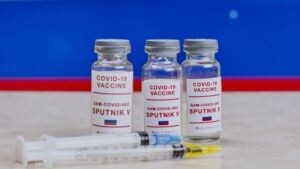Nairobi/New Delhi (D. Ravi Kanth) — The Nairobi “deliverable” on export competition on Saturday (December 19) provided a major victory for the United States, which secured the green signal to continue with its current trade-distorting agri-export programs with export credits, and food aid.
The US, Brazil and the EU also ensured that India did not get the language it proposed on the accelerated work program for the special safeguard mechanism (SSM) and permanent solution for public stockholding programs for food security.The so-called G-5 meeting involving the United States, the European Union, China, India, and Brazil witnessed several battles on outcomes concerning export competition, SSM, and public stockholding programs for food security.
“Our work to secure a global (accord) on export subsidies will help level the playing field for American farmers and ranchers,” the US Trade Representative Ambassador Michael Froman claimed after the meeting. “The WTO’s actions in this area will put an end to some of the most trade distorting subsidies in existence and demonstrates what is possible when the multilateral trading system comes to solve a problem,” he said, suggesting that members should pursue new “multilateralism”.
The language on export subsidies says, “developed members shall immediately eliminate their remaining scheduled export subsidy entitlements as of the date of adoption of this Decision” but with several caveats including that it “shall not cover processed products, dairy products, and swine meat of a developed member” until 2020.
Switzerland, Canada and Norway have four years to continue with export subsidies for processed products and dairy products even though they sought seven years, said a source familiar with the G-5 meeting.
India did not secure what it wanted on export subsidies but managed to retain Article 9.4 of the Agreement on Agriculture. The developing countries will have to end their export subsidies by 2023 as compared to 2028 in the facilitator’s first draft issued on December 17.
But in a footnote on export subsidies in the final decision, India is forced to agree to eliminating “its export subsidies by the end of 2022 for products or groups of products for which it has notified export subsidies in one of its three latest export subsidy notifications examined by the Committee on Agriculture before the date of adoption of this Decision.”
On export credits, the US managed to secure maximum repayment period for 18 months with a standstill provision for the existing programs. The 2005 Hong Kong Ministerial Declaration and the 2008 revised draft modalities suggested a repayment period of only 180 days or six months.
The US also secured flexible disciplines on self-financing in the terms and conditions for export credits. The developing countries are offered four years, by 2020, to phase-out their current repayment terms for export credits and subsequently, continue with a maximum repayment period of 18 months.
The agreement on food aid is specifically beneficial for the US as it contains only limited disciplines without covering the monetization of non-emergency food aid, said an official familiar with the meeting.
The European Union which sought stronger binding disciplines on food aid in accordance with the 2008 revised draft modalities agreed to the outcome without much opposition, a European official said.
The disciplines on agricultural exporting state-trading enterprises contain best endeavour provisions “to ensure that the use of export monopoly powers by agricultural exporting state trading enterprises is exercised in a manner that minimizes trade distorting effects and does not result in displacing or impeding the exports of another Member.”
On special safeguard mechanism and the public stockholding programs for food security, India managed to get an accelerated work program with indefinite timeframe. Though India, China, and Turkey asked for concluding the decisions on these two issues by end-2017, there is no time frame in the final decision issued at the Nairobi ministerial meeting.
The decision on SSM mentions the Hong Kong Ministerial Decision but not the 2008 revised draft modalities of the Doha negotiations. The US effectively ensured that there is no mention of DDA decisions in SSM, said a source familiar with the meeting. – TWN



